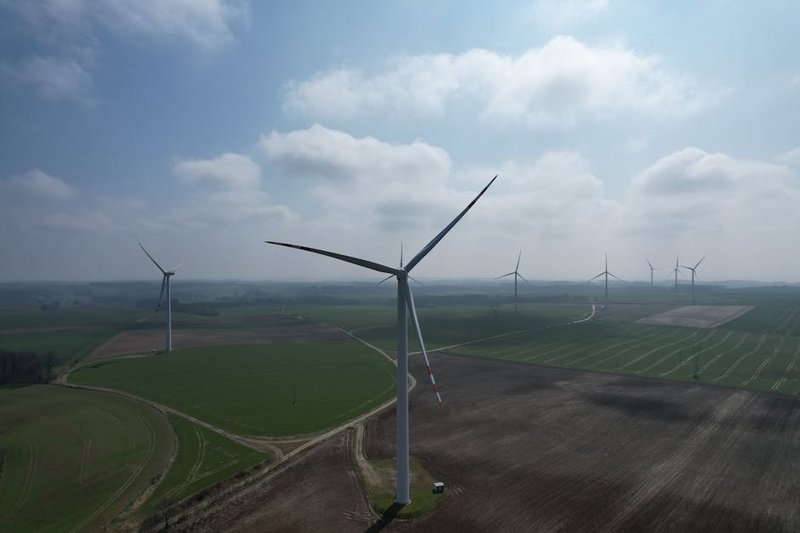Letter from Danny White
Dear Future Innovators,
As I write this letter in early 2025, I’m still trying to wrap my head around the technological revolution we’re experiencing. Just three years ago, I was the skeptical middle manager at Meridian Technologies who questioned whether AI would truly transform our workplace or just become another flashy tool that collected digital dust after the initial excitement wore off.
I was wrong. So wonderfully, productively wrong.

When our CTO announced the company-wide implementation of Claude AI assistants last year, I led the resistance committee (not an official title, but that’s what we called ourselves in hushed break room conversations). My team had survived countless tech “revolutions” that promised to make our jobs easier but instead added layers of complexity and frustration. Why would this be any different?
The turning point came during what our leadership team brilliantly labeled “AI Sandbox Week.” Instead of forcing the technology on us, they created a consequence-free environment where we could experiment with AI tools to solve our actual day-to-day problems. No mandates, no quotas, no judgment.
I reluctantly submitted my first prompt: “Help me write a more engaging quarterly report that won’t put the executive team to sleep.” The response not only provided a fresh structure but suggested visualizations I hadn’t considered and pointed out insights in our data that I’d overlooked.
That single interaction saved me four hours of work. By the end of the week, I had automated my team’s most tedious reporting tasks and was exploring ways to use AI for deeper market analysis—work we previously lacked the bandwidth to pursue.
The Human-AI Partnership
What I’ve learned over the past year is that successful AI integration isn’t about replacing humans—it’s about augmenting our capabilities. Our CEO was smart enough to focus on what she called the “elevation strategy” rather than the “efficiency strategy.” Yes, AI helped us work faster, but more importantly, it elevated the quality and impact of our work.
The resistance melted away when people experienced their own “aha” moments with the technology. For some, it was seeing how Claude could draft personalized customer communications in seconds. For others, it was watching AI analyze complex datasets and identify patterns that would have taken weeks to discover manually.
Our leadership team did three critical things right:
- They focused on solving actual pain points rather than implementing AI for AI’s sake
- They invested heavily in training and creating a culture of experimentation
- They celebrated both the productivity gains and the creative breakthroughs
Human – The Challenges Were Real
I won’t sugarcoat it—this transition wasn’t seamless. We lost two valuable team members who couldn’t or wouldn’t adapt. Several projects stumbled when we over-relied on AI without proper human oversight. We had a minor security incident when someone fed sensitive customer data into a public AI tool instead of our secure internal system.
But these growing pains led to better protocols and a more nuanced understanding of AI’s strengths and limitations. We learned that AI excels at first drafts, data analysis, and generating options—but human judgment remains essential for final decisions, creative leaps, and ethical considerations.

Human – Where We Are Now
Today, every employee at Meridian has their own AI companion customized to their role and work style. Our marketing team uses AI to generate and test dozens of campaign concepts before selecting the most promising for human refinement. Customer service representatives collaborate with AI to solve complex problems in real-time while maintaining the empathetic human connection our clients value.
Most surprisingly, AI has democratized innovation throughout the company. Junior staff who might have spent years learning specialized skills can now contribute sophisticated analysis and polished work products. People who once felt stuck in repetitive tasks have found time to pursue more meaningful projects.
Our quarterly all-hands meetings now feature an “AI Breakthrough” segment where employees share innovative ways they’re using the technology. Last month, our accounting department demonstrated how they’re using AI to forecast cash flow with unprecedented accuracy, while our product team showed how AI-generated prototypes have cut our development cycle by 40%.
What I Wish I’d Known
If I could go back and give advice to my resistant self, I’d share these insights:
- The best AI implementations amplify human strengths rather than replacing them
- Start with small, low-risk applications that deliver immediate value
- Create space for experimentation and celebrate creative applications
- Be transparent about mistakes and learn from them publicly
- Focus on the human skills that become MORE valuable in an AI world—judgment, creativity, empathy, ethics
I’m writing this letter because I recognize that many of you are where I was a year ago—skeptical, concerned, maybe even afraid. Those feelings are valid. Change is hard, and this particular change is reshaping the nature of work itself.
But I’ve discovered that when implemented thoughtfully, with genuine concern for employee experience, AI becomes less of a threat and more of a superpower. It removes the drudgery from our work lives and creates space for the meaningful contributions that humans are uniquely qualified to make.
The future belongs to those who can partner effectively with these new digital colleagues—not by surrendering our humanity, but by doubling down on what makes us human in the first place.
Embrace the change, but do it on your terms. Ask the hard questions. Demand technology that serves your needs rather than dictating them. And remember that behind every algorithm are human decisions that can be influenced by your voice.
The AI revolution is here, and it’s more human than I ever expected.
Looking forward,
Danny White
Former AI Skeptic, Current AI Evangelist
Meridian Technologies



